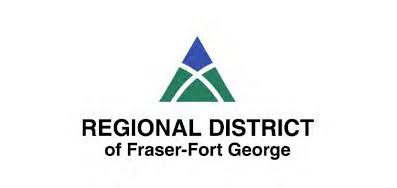Some students attending secondary and post-secondary schools in the Regional District of Fraser-Fort George will get some extra help covering the rising costs of tuition.
Last week, the Regional District of Fraser-Fort George board of directors approved increasing the bursaries it offers to School District 57, UNBC and College of New Caledonia students.
Bursaries offered to School District 57 and CNC students will increase from $500 to $1,000, and the regional district bursary for UNBC students will increase from $1,000 to $2,500. The new amounts will come into effect for the 2023-24 academic year.
“I am definitely in support of increasing these,” alternate director Cori Ramsay said.
Ramsay said she was fortunate enough to live at home while attending post-secondary school in Prince George, but many students from the rural areas of the regional district don’t have that opportunity. Increasing the bursary amounts may help take some of that burden off of rural students and their families, she added.
“After putting two daughters through post-secondary who lived away… thank you for the support of young students (in the district),” board chairperson Art Kaehn said.
In a report to the board, requested by the board in August, district general manager of legislative and corporate services Karla Jensen said the bursaries offered by the regional district benefit local students.
“SD No. 57 students must be enrolling in post-secondary full-time studies and must be a resident of the Electoral Area for the bursary being applied for and be graduating from the high school serving that Electoral Area,” Jensen wrote. “For UNBC and CNC bursaries, students must be enrolled in full-time studies and have graduated from an accredited secondary school within the Regional District or a mature student who has established permanent residency within the Regional District.”
The regional district has offered bursaries to College of New Caledonia students since 1988, and created a second bursary for CNC students in 2005, as well as a bursary for UNBC students. The district has offered bursaries to area School District 57 students since 2013.
Jensen said in speaking to staff at CNC and UNBC, with rising costs of education the larger amounts “would provide more of an impact on student assistance.”
A comparison of bursaries offered by other regional districts showed a wide range of amounts and numbers of bursaries offered, Jensen added. Some districts, like East-Kootenay and Alberni-Clayoquot, offered none, while regional districts like Peace River and Kitimat-Stikine offered extensive bursaries, focused primarily on health-related studies.
For example the Peace River Regional District offers up to $5,000 in bursaries for up to six students per year, studying to become registered nurses and registered psychiatric nurses. Under the program, students must sign a two-year return of service agreement with Northern Health to work in the Peace River Regional District.
The Peace River Regional District also offers similar programs for licensed practical nurses, health care assistants and health care workers looking to upgrade their training.



